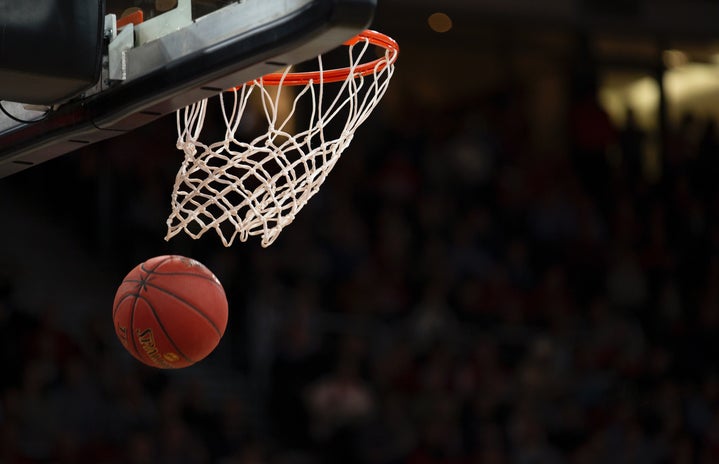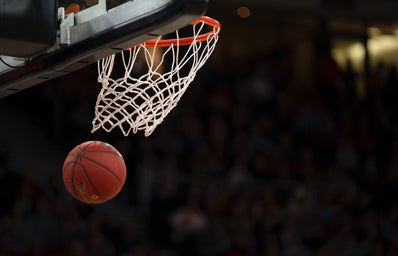As the 2024 March Madness Tournament fades from public conversation, a societal shift has become evident. This year’s competition was the first in which sports fans had to clarify which competition they were watching — the women’s or the men’s.
For the first time in history, the Women’s NCAA championship game drew 18.9 million viewers while the men’s championship game reached a mere 14.8 million viewers, per the Wall Street Journal. This viewership is unheard of, especially considering the women’s game was played on a Sunday afternoon, while the men’s game played at Monday Night primetime.
This year’s competition broke a series of records: most viewership, most points, and most attention directed toward women’s sports and their value within the sports world.
Most notably, Caitlin Clark, Iowa’s superstar and catalyst to their amazing season, broke Pete Maravich’s record of 3,667 points and cemented herself as the all-time NCAA Division One scoring leader with Iowa’s win against Ohio State just before the post-season began. This record-breaking set the stage for female success on a national stage.
However, it would be an understatement to say that Clark’s success, while immense, overtook the entirety of the March Madness Tournament, despite the fact that she could not lead her team to success over South Carolina in the championship game.
Clark has an incredibly impressive resume, adorned on Monday with her being the number one draft pick in the 2024 WNBA Draft to the Indiana Fever. Yet, her March Madness run and press conferences consumed media coverage about the entire tournament, leaving many other players in the dust or actively devalued within women’s sports coverage.
The final championship game between Iowa and South Carolina was dominated by coverage of Clark. Even after the final buzzer rang out, with a final score of 75-87 South Carolina, the first reaction the 18.9 million viewers saw was of Clark’s face post-loss. The undefeated starters of South Carolina, none of whom were starters last season, were only viewed by fans during the handshakes long after the game had ended.
The Gamecocks’ Women’s Basketball team wasn’t even wholeheartedly celebrated by ESPN, as there were more Instagram posts celebrating the end of Clark’s collegiate career than the impeccable season and perseverance that Dawn Staley, South Carolina’s coach, and her crew embodied.
Even Staley was only celebrated on ESPN for her responses surrounding Clark, rather than for her leadership in bringing the Gamecocks to six NCAA Final Four appearances in the last 9 years, and securing seven seasons with a minimum of 30 wins. Those insane accomplishments, along with three national championships in Columbia, were rarely brought up, if at all, during coverage.
In spite of Gamecocks’ Kamilla Cardoso and Tessa Johnson’s outstanding performances, their work was not properly evaluated by sports analysts because of Clark’s prowess, underlining a consistent habit of sports journalists to uplift women in sports solely through white women.
This trend was also evident with the treatment of Angel Reese and the LSU Women’s Basketball team. Prior to the majority Black team’s game against UCLA, UCLA’s beat writer, Ben Bolch, released a particularly accusatory pre-game article in the Los Angeles Times. The article called the Lady Tigers “dirty debutantes” playing against “America’s sweethearts,” and deemed the game as the battle between “good and evil,” per the now-deleted portion of his commentary. An apology was shortly issued to both teams, and LSU head coach Kim Mulkey spoke out about the abuse during a press conference post-win against UCLA, saying “it was so sexist and they didn’t even know it.”
This article additionally called the UCLA Women’s Basketball team “milk and cookies,” alluding to the lighter skin tone of the team as well as their more ‘lighthearted demeanor,’ again playing on racial contrasts to the largely-POC Lady Tigers.
The separation between Black and white women in the Tournament was also evident in financial prowess. Per Business Insider, Clark’s NIL valuation is around $3.1 million dollars, while Reese’s pales in comparison at $1.8 million. This contrast is stark considering the social influence that Reese has, both on and off the court, earning herself the nickname “the Bayou Barbie.”
The deficits in coverage, positive publicity and financial gain emphasize an ongoing trend in the treatment of Black women: they will never be valued appropriately until society ceases to contort their authenticity into the stereotypical portrayals of Black women.
Despite the immense impact Clark has on the social importance of women’s college basketball, the over coverage of her career allows sports analysts and journalists to gloss over the fact that they refuse to uplift and support Black women attempting to do the same thing. This trend will repeat infinitely until the sports world can appreciate the beauty of Black women and their contributions to the sports sphere.


